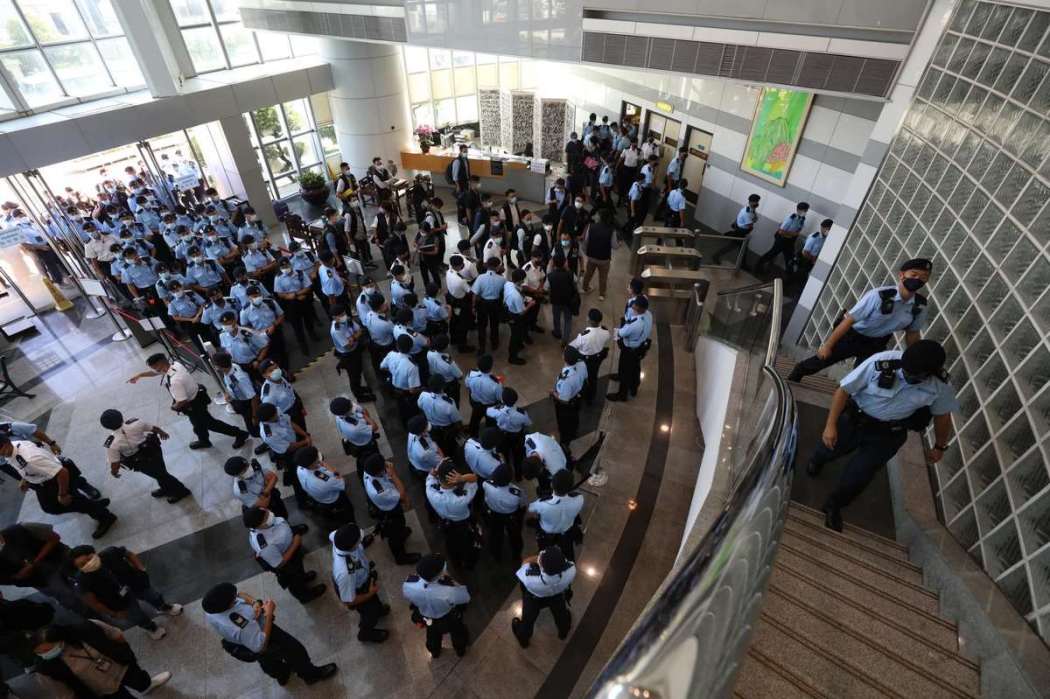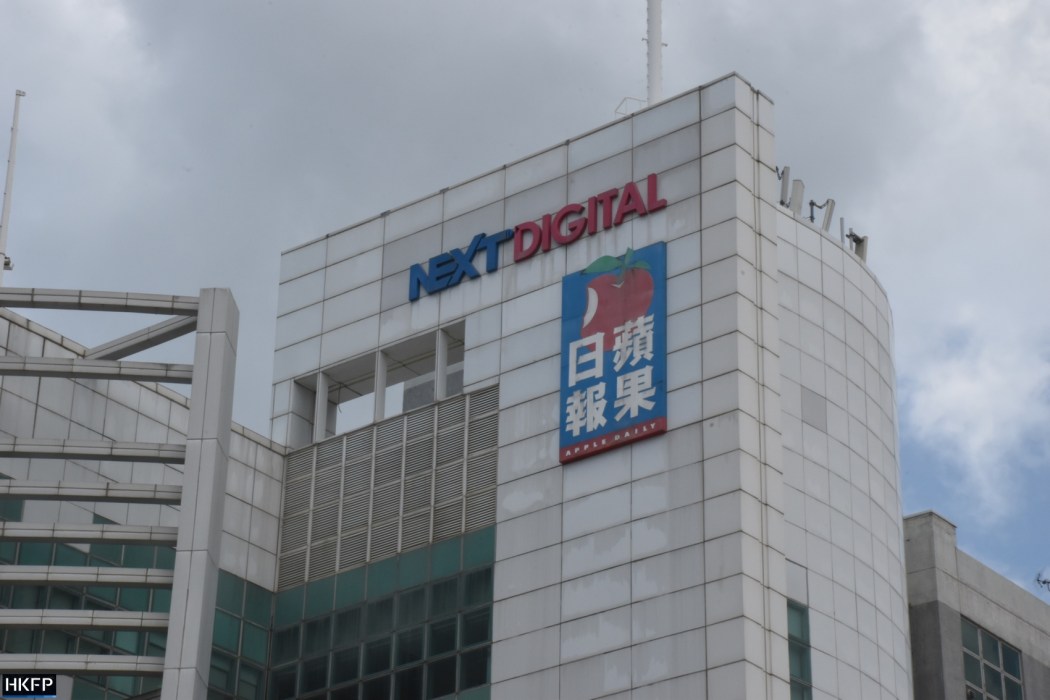Hong Kong’s security chief accused pro-democracy tabloid Apple Daily of using journalism as a tool to endanger national security and warned fellow journalists to shun five arrested executives, following a raid on the newsroom by hundreds of police.

Otherwise, said Secretary for Security John Lee, they could pay a “hefty price.”
Apple Daily journalists vowed to print Friday’s edition regardless. The newspaper said 38 computers were seized during a five-hour raid.
“Ordinary journalists are different, and should not get involved with them, keep a distance from them,” Lee told a press conference. “I hereby solemnly declare that: don’t associate with these criminals endangering national security, you will pay a hefty price if [you] stand with these criminals, [you] should cut ties with these criminals before it’s too late to repent.”

The raid was the first on a media organisation in relation to content which allegedly breached the Beijing-imposed national security law. Police said the alleged offence involved around 30 Chinese and English-language Apple Daily articles published since 2019 and calling for sanctions against China or Hong Kong.
“…anyone or any company attempting to use journalistic work as a protective umbrella or cover to commit crimes endangering national security, the SAR government will use the most stringent measure to combat [them] in accordance with the law,” said Lee.

Police said the four men and one woman – aged 47 to 63 – were apprehended for allegedly colluding with foreign forces to endanger national security.
“We need to differentiate what these suspects have done from normal journalistic work. ” said Lee. “…normal journalistic work of course takes place freely and lawfully in Hong Kong, and I do not envision any profession journalist would be conspiring to do any act to endanger national security.”
“So the answer is simple: do your journalistic work as freely as you like in accordance with the law, provided you do not conspire or have any intention to break the Hong Kong law, and certainly not the Hong Kong national security law.”

Lee refused to answer questions on whether the continuation of Apple Daily’s operations would violate the law, the nature of the articles, or whether citizens would violate the law if they share the articles, buy the paper or purchase shares.
Union condemns raid
The raid was the second on the paper after one last August, when its founder Jimmy Lai and others were arrested. The 73-year-old has been sentenced to 20 months in prison for protest-related offences and is awaiting trial on national security charges punishable by life imprisonment.
Police said Thursday’s operation involved 500 officers.
Next Media Trade Union strongly condemned the raid: “By merely suggesting some past news articles have breached the NSL [National Security Law], they can treat editorial staff as criminals, journalistic work as crimes, and newsroom as a crime scene,” its statement read. “This is a blatant violation of freedom of the press in the name of national security.”
The union also said the court’s decision to issue a warrant that allowed the police to search for and seize journalistic materials was “regrettable.”
“This will damage public confidence in the press, deterring them from agreeing to interviews or providing information. All this will weaken the role of the press as the Fourth Estate,” the union said.
“To make things worse than the last time, police today removed all journalists present from their desks and did not allow the search to be filmed. We condemn the police for disrupting our operations as a news outlet, and urge them to leave as soon as possible to avoid further disruptions.”
‘Black box operation‘
The union said it aimed to publish the paper “as normal” on Friday. Next Digital is the parent company of Apple Daily.
The Democratic Party demanded the police make public the articles that allegedly broke the national security law, and described the raid as a “black box operation.”
“Press freedom is Hong Kong’s core value. The government’s action is no different from oppressing the room for expression by media organisations, keeping journalists and media organisations quiet,” said Sin Cheuk-nam, the party’s spokesperson for technology and broadcasting policies.
Samuel Chu, managing director of US-based group the Hong Kong Democracy Council, said that “the five Apple Daily executives were targeted for exercising and defending the freedom of the press.”
In June 2020, Beijing inserted national security legislation directly into Hong Kong’s mini-constitution – bypassing the local legislature – following a year of pro-democracy protests and unrest. It criminalised subversion, secession, collusion with foreign forces and terrorist acts, which were broadly defined to include disruption to transport and other infrastructure. The move gave police sweeping new powers, alarming democrats, civil society groups and trade partners, as such laws have been used broadly to silence and punish dissidents in China. However, the authorities say it has restored stability and peace to the city.
Support HKFP | Policies & Ethics | Error/typo? | Contact Us | Newsletter | Transparency & Annual Report | Apps
Help safeguard press freedom & keep HKFP free for all readers by supporting our team
























